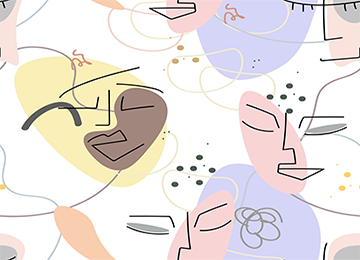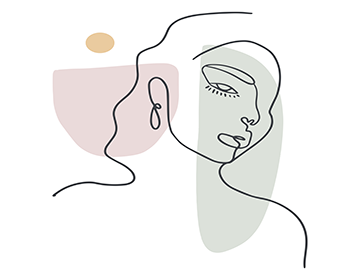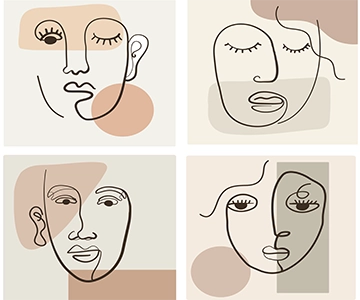Exploring Attachment Styles in Anora
Through millennia there have been several iterations of ‘Damsel in Distress meets Prince Charming’. From fairytales, Disney movies and of course Pretty Woman, which I think is the closest comparison to Anora. However, I found Anora refreshingly real when compared to its counterparts.
Here we have a feisty exotic dancer/sex worker who finds her ‘Prince Charming’ in the form of a Russian oligarch’s son. However, this is no fairytale with a happy ending, in fact, the ending of this film culminates in an avalanche of emotions!
Firstly, let’s think about the Russian Prince Charming, Vanya. Charming he is not, in fact, he’s a sorry character who’s in the shadow of his successful father and overbearing mother. He seems compelled to act out his anger on them for robbing him of his own agency, whilst simultaneously showing a complete lack of interest or care for his wellbeing. Despite having all the money in the world, children of famous or wealthy parents can find it difficult to form their own identity and forge their way in the world, it can feel like a curse. Their parents will often have rigid expectations over the career and partner choice of their children. We later see Vanya avoiding his parents and running away leaving Ani to fend for herself. In attachment terms, it can be fair to say he’s avoidant and in arrested development.
So how does a fierce, sassy exotic dancer like Ani (Anora) fall for this doomed relationship? We don’t know much about her background, but based on the relationships around her, it can be fair to deduce that Ani lives in, and probably grew up in, a world where you either win or lose, which puts her in constant survival mode. It’s a ‘me against the world’ attitude where relationships are by nature transactional. She lives next to a railway where the constant intrusive noise of trains going past her bedroom window are like the men she has to dance for every night. Her relationship with her sister is fraught with spiky interactions and then there’s her nemesis at the strip club, appropriately called ‘Diamond’. One of the few scenes where we hear Ani talk about her family, she tells Vanya that if her sister was to meet him she’d try to steal him. Everyone’s out to get her or take from her. We can hypothesise that Ani could be on the disorganised attachment spectrum. Though, allow me to clarify that this does not apply to all sex workers!
Ani is polarised between two parts of her inner world. On the one hand, she falls for Vanya because the little girl in her wants to believe in the fairy tale romance. This is contrasted by the other part of Ani, the bolshy jaded sex worker who thinks men are only after one thing and where relationships are transactional. We see this side in the concluding scene, when Ani accuses Igor (one of the family’s ‘fixers’, brought in to provide additional support for the family’s security team) of being a rapist. In one scene, she accuses him of having 'rape eyes'. When he explains that he would NOT have raped her given the opportunity, she retorts ‘why wouldn’t you have raped me? because you’re a faggot ass bitch, that’s why!’ So his masculinity can only be toxic or weak, no in between.
The most moving and interesting dynamic is actually between Ani and Igor. This is slowly introduced to us by focusing on Igor’s reactions to the chaos of trying to find the missing Vanya. We can see that he’s secretly rooting for Ani and is sympathetic towards her, as he seems to understand that her emotional reactions are coming from a place of pain.
Now let’s get back to that ‘avalanche of emotions’ ending.
Spoiler alert:
After the marriage has been annulled and Igor is dropping Ani off at her modest house next to the railway line, he gives her the diamond wedding ring that was taken from her by Vanya’s guardian. Ani isn’t quite sure what to make of this kind gesture, she assumes he wants something in return because in her world nothing is given for free. So she takes control of the situation and reverts to her ‘transactional mode’ initiating sex with Igor (in the car with the engine running, as you do!). He tries to make eye contact with her, looking for an emotional connection, and when he tries to kiss her she begins to hit him and tells him to let her go until finally she collapses in tears and he consoles her. At last, the floodgates open and these are old tears, not only from having to hold it together throughout the last 24 hours, but this is a cascade of grief, loss and vulnerability that is rarely allowed in Ani’s ‘fight or flight’ world.
Moral of the story, diamonds are not a girl’s best friend and sadly they aren’t always forever.



